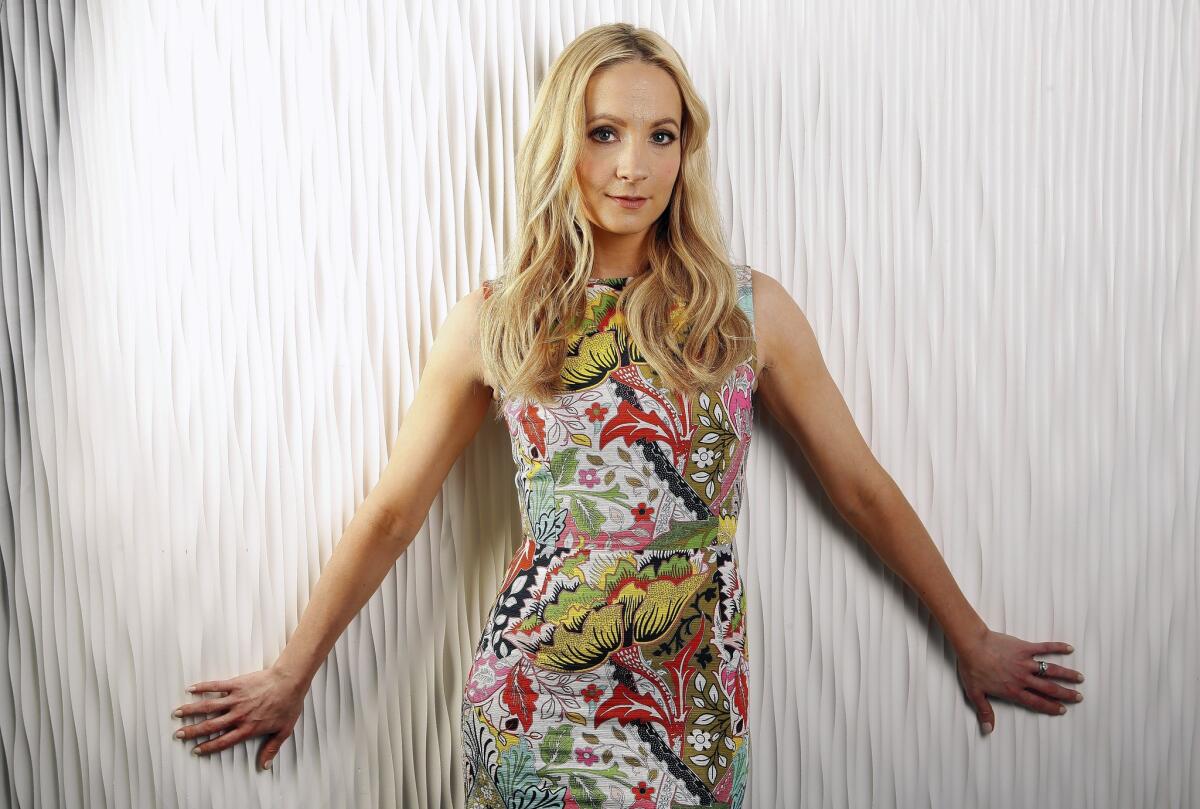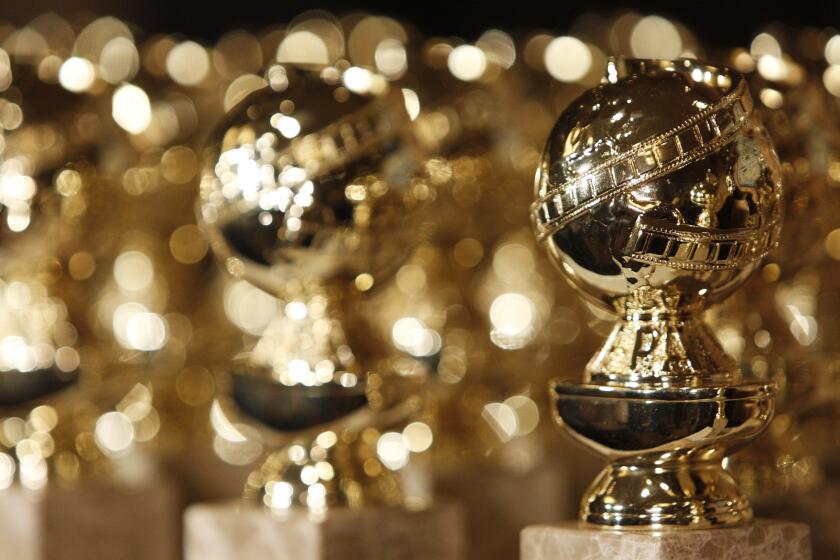Joanne Froggatt on the hushed tones but hard edge of ‘Downton Abbey’

Sitting poolside in a shaded veranda, Joanne Froggatt orders a green tea, her bright-blond hair loose and untied, trailing over her shoulders. It’s a far remove from the mostly stoic, always-serving Anna Bates, her character on the PBS hit “Downton Abbey” — but, to be fair, “Downton’s” mix of English social structures and serialized, scandalized storytelling is also fairly distant from the acting work Froggatt was taking on before the “Masterpiece” series’ cross-cultural, cross-oceanic success.
“My agent sent me the script, and I had just played a soldier in a U.K. movie about PTSD. So when I read the part of Anna, it was so opposite to the thing I’d just done, which I always love.”
“Downton Abbey” began in 1912; last season took place in 1923, all in a time period you could call the great age of English repression.
That’s a really interesting thing to play as an actor. The first episode [before their marriage], Anna goes to take Mr. Bates a tray of food because he’s going to be given the sack because of his leg injury. She’s taking this tray to [communicate] “I really feel for you and I feel that we have some kind of connection,” but she’s just saying, “I’ve brought you some food.”
But when Anna is working as Lady Mary’s lady’s maid in scenes opposite Michelle Dockery, your characters are in this open, warmer space.
Michelle and I both love playing the scenes in Lady Mary’s bedroom; you get those moments when that structure is slightly lessened, [yet] Anna is always mindful of the fact that she is Lady Mary’s employee. In Season 5, which we’re filming now, Anna is even more forthright with her opinions; it’s for Mary’s own good, purely because she cares about her.
Last season, Anna was sexually assaulted by the valet of a guest at Downton, and that plotline shocked viewers. What were your thoughts on that part of Anna’s story?
It was shocking because it’s supposed to be shocking. This is a shocking event to happen to anybody, and it’s a shocking thing to happen to this character, who is a nice person — and bad things happen to nice people. If the drama can get people talking about certain subjects, whether it be this or something else, I think that’s a really powerful, important thing. Since the story line broke, people started talking to me about their family history; I also heard a couple of stories through a friend of mine. He’s in his 50s, and he said his grandmother was in service, and she never, until she was dying, had spoken about this thing that had happened to her. She could never speak of it. It’s things like that where you go, “My God, this really did happen, and especially to women in service.” They didn’t have the rights of the aristocracy.
The show is very, very British. When it became this cross-oceanic, cross-cultural phenomenon and took off in America, was that surprising?
For it to be accepted here is a really amazing thing for us. But then it was the biggest show in Spain, and we have 160 million viewers in China. So I don’t know quite what it is that speaks to all these different cultures and all these different places, but I’m just really happy that it does.
Sign up for the Envelope Newsletter
More to Read
From the Oscars to the Emmys.
Get the Envelope newsletter for exclusive awards season coverage, behind-the-scenes stories from the Envelope podcast and columnist Glenn Whipp’s must-read analysis.
You may occasionally receive promotional content from the Los Angeles Times.









